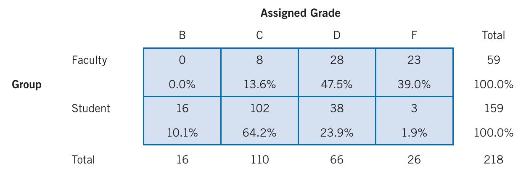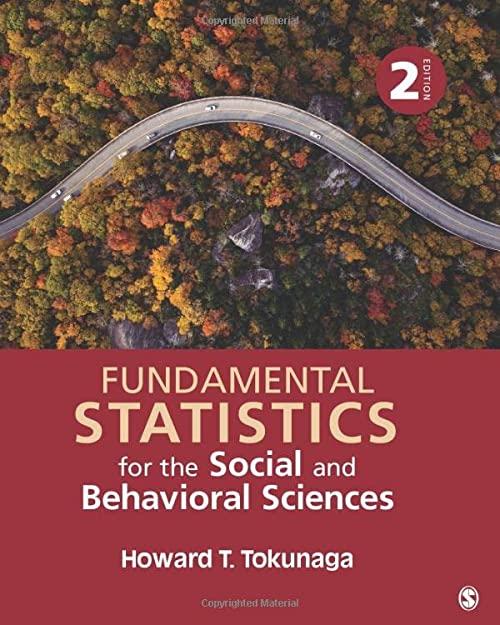Students and teachers sometimes disagree regarding what factors and information teachers should take into account in assigning
Question:
Students and teachers sometimes disagree regarding what factors and information teachers should take into account in assigning grades to their students. "Although faculty and students agree that grades should reflect achievement performance, they do not agree on the relative impact effort should have on grades" (J. B. Adams, 2005, pp. 21-22). If a student's performance in a general elective course is failing but at the same time he or she puts in a lot of effort, what grade should that student receive? This study asked this question to a sample of faculty and students; their responses are organized below:
Conduct the chi-square test of independence to address whether there is a difference in the distribution of grades assigned by faculty versus students.
a. Draw a bar chart of the data.
b. State the null and alternative hypotheses \(\left(\mathrm{H}_{0}\right.\) and \(\left.\mathrm{H}_{1}\right)\).
c. Make a decision about the null hypothesis.
(1) Calculate the degrees of freedom \((d f)\).
(2) Set alpha \((\alpha)\), identify the critical value, and state a decision rule.
(3) Calculate a statistic: chi-square \(\left(\chi^{2}\right)\).
(4) Make a decision whether to reject the null hypothesis.
(5) Determine the level of significance.
(6) Calculate a measure of effect size (Cramér's \(\phi\) ).
d. Draw a conclusion from the analysis.
e. Relate the result of the analysis to the research hypothesis.
Step by Step Answer:

Fundamental Statistics For The Social And Behavioral Sciences
ISBN: 9781506377476
2nd Edition
Authors: Howard T Tokunaga




